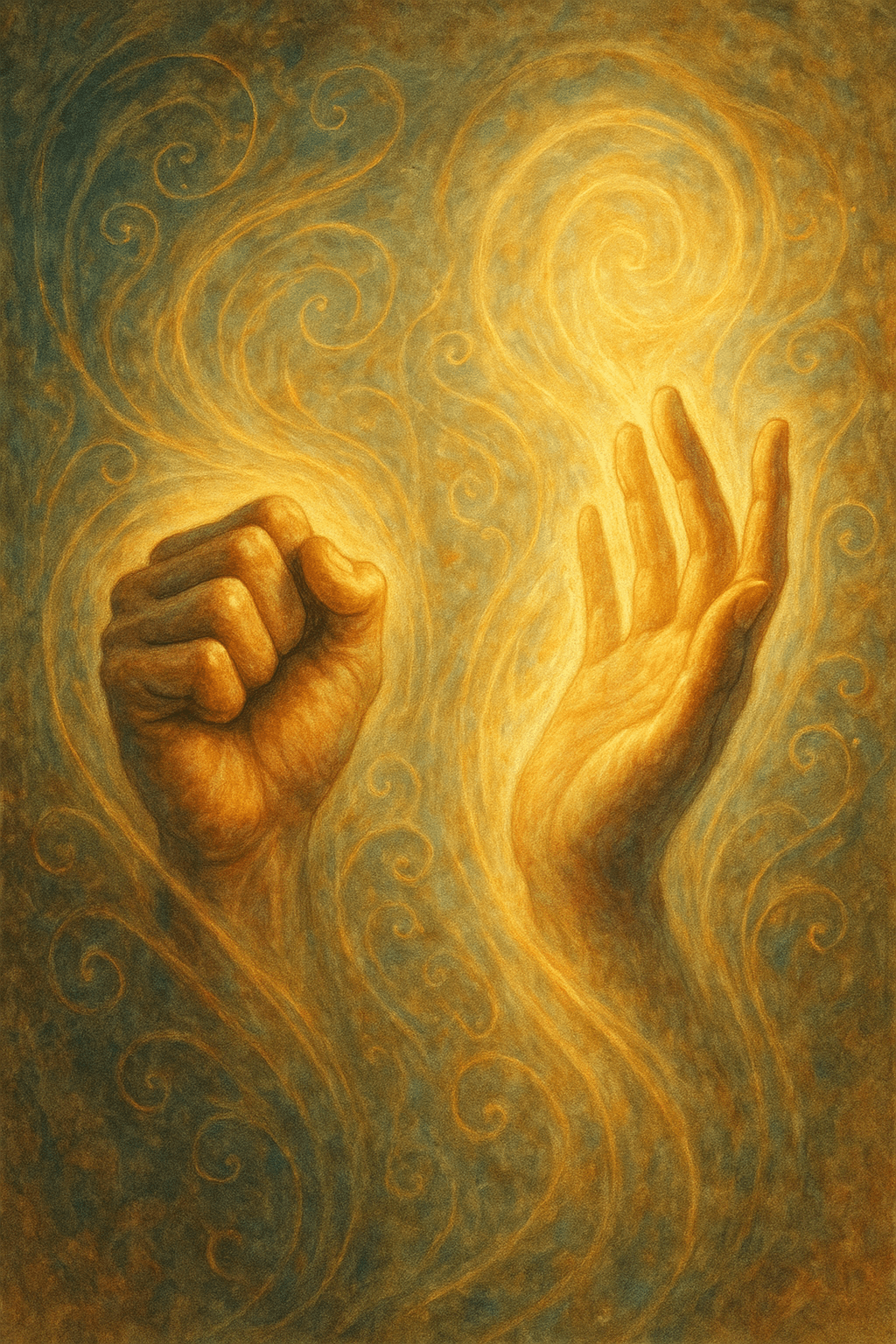The Dance of Spirit and the Grace of Flexibility

The hand opens and closes, opens and closes. If it were always a fist or always stretched open, we would be paralyzed. The spirit’s progress is a dance. — Rumi
—What lingers after this line?
One-minute reflection
Why might this line matter today, not tomorrow?
The Symbolism of the Hand
Rumi’s image of the hand repeatedly opening and closing is more than just a physical observation—it becomes a powerful metaphor for life’s adaptability. Just as the hand cannot serve its purpose if always clenched or perpetually extended, so too are people rendered incapable or stagnant without flexibility. The hand’s function lies in its continual motion, echoing the natural ebb and flow inherent in living well.
Paralysis Through Rigidity
Expanding on this metaphor, Rumi warns against the dangers of rigidity in body and spirit. To stay fixed—whether in anger, fear, or passivity—limits growth and opportunity. This theme echoes ancient wisdom traditions; for example, Laozi’s *Tao Te Ching* (c. 4th century BC) praises the yielding nature of water over the hardness of stone. Just as inflexibility paralyzes the hand, so too can inflexible thinking or unyielding habits paralyze the soul.
Movement as Spiritual Progress
Transitioning from the body to the soul, Rumi draws a direct line between physical movement and spiritual evolution. By calling progress a ‘dance,’ he conjures the image of spiritual development as rhythmic, graceful, and ever-changing. Dance requires both discipline and spontaneity—qualities mirrored in the journey of personal growth. Spiritual progress, then, is not linear but a series of open and closed moments, each essential to growth.
Acceptance of Life’s Rhythms
Building on the notion of spiritual dance, acceptance emerges as a vital element. Life’s cycles—joy and sorrow, gain and loss—demand our response, not resistance. Much like Sufi whirling practices, which Rumi himself often invoked, surrendering to motion lets seekers find balance within chaos. The wise person, Rumi implies, opens and closes emotionally and spiritually as circumstances require, remaining attuned to life’s music.
Integrating Flexibility Into Daily Life
Ultimately, Rumi’s metaphor invites practical reflection on everyday existence. When challenges arise, responding with rigidity leads to suffering, while openness to change fosters strength and resilience. Modern psychology validates this: studies on resilience stress the importance of psychological flexibility in adapting to adversity (Kashdan & Rottenberg, 2010). In learning to dance with life—opening and closing—one becomes truly free, unburdened by paralyzing extremes.